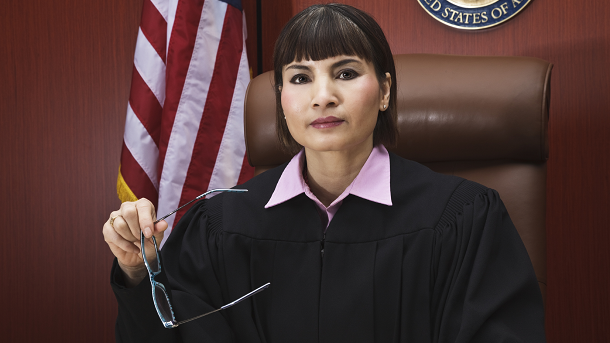
Jury consultants have been a staple of litigation prep and courtrooms for decades. Regardless of your case or jurisdiction, you can now select from scores of specialists in every shade of psychology and the law who promise to help you choose the best possible jury for your trial. You can study articles on topics as narrow as how to flush out the juror who won’t stay off the Internet at trial or how jurors react to different camera angles at deposition.
With all this advice and expertise on juror selection and behavior, there has, historically, been scant intelligence on the one person with the single greatest impact on a trial:
The judge.
While jurors deliver the verdict, judges direct the process that leads toward the verdict. They deliver the critical rulings on everything from the case’s timeline to each and every word you speak. And as any jury consultant will tell you, their reactions to your arguments, your objections, your in-court behavior, can sway a juror’s opinion of you.
And in a bench trial? Your judge all-powerful.
 Yet for their central role in a case, the pre-trial preparation for judges has historically been limited to second-hand information from peers who might have tried a case in front of a judge, or extrapolating a few vague ideas on how a judge might run a trial from a quick Internet search of verdicts in their cases.
Yet for their central role in a case, the pre-trial preparation for judges has historically been limited to second-hand information from peers who might have tried a case in front of a judge, or extrapolating a few vague ideas on how a judge might run a trial from a quick Internet search of verdicts in their cases.
While attorneys in small towns might be able to rely on years of experience with the handful of judges they see throughout their careers, the majority of attorneys who practice over a wide jurisdiction or appear pro hac vice across the country lack that critical experience of how a judge runs a trial, and the insight into their preferences.
But the sweeping expansion of cameras in the courtroom has changed the nature of research on trial judges.
The same cameras that cover trials for news outlets across the country also see every ruling, every raised eyebrow of the trials’ judges.
Video can show you everything from how much latitude you might have on opening statements to when you’re expected to propose jury instructions.
While you can’t choose your judge like your jury, courtroom video provides you a window into your judge’s inclinations on every aspect of a case, allowing both you and the judge to run a smoother, more efficient, more successful trial.
Three Keys to Researching Your Judge
You can learn important keys to how your judge runs a trial and what your judge prefers with just a few hours of video study.
- Choose a case most closely related to yours. A judge that runs a tight ship in one type of case may be more lenient on argument and evidence in another.
- Focus on openings and closings. Minute for minute, they provide the most concentrated opportunities for rulings on objections. How does your judge respond? Do they rule quickly or call frequent sidebars? Just as important, what does their body language suggest in their reaction to the attorneys? Do they appear agitated? Impassive? If you can see these reactions, so can a jury.
- Study video of anything outside the jury’s presence. Arguments on jury instructions, hearings on motions to dismiss… any of these proceeding provide you critical insight into how a judge behaves when they don’t have jurors' eyes upon them. Judges tend to act more naturally outside the presence of a jury, whether scolding, joking, or commiserating with attorneys from both sides. In these moments you can better understand your judge’s personality and how they approach a trial.
While consultants provide the best option for selecting your trial’s jury, courtroom video now delivers an unprecedented, unequaled well-spring of knowledge on your judge, and the tool you need to most effectively try your case.
Related Information




